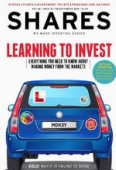Archived article
Please note that tax, investment, pension and ISA rules can change and the information and any views contained in this article may now be inaccurate.
Do you need an investment insurance policy?

It’s more than likely that you insure your home, car and even your health – so why not your investment portfolio?
While, unfortunately, there’s no such thing as an insurance policy that will pay out if your investment portfolio takes a hit, there are measures you can take to build some protection into your portfolio.
Any decent mix of investments should contain some holdings which are designed to kick in should the stock market take a turn for the worse, and having such investments becomes increasingly important at times of uncertainty.
Between Brexit negotiations, trade war talk and the latest tweets from president Donald Trump, there is much to be nervous about at the moment and volatility is creeping back in to global stock markets.
INSURANCE PLAYS
David Coombs, head of multi-asset investments at Rathbones, says: ‘It’s easy to lose sight of the need for insurance in your investment portfolio when there has been a raging bull market for almost a decade and everything has been going up all the time, but investors should have been considering insurance plays for at least the past year or so.’
Identifying how you can insure your investments means determining which are the areas you think are most likely to go wrong and working out how to counterbalance them. Just as you wouldn’t buy car insurance and expect it to pay out if your house caught fire, you have to choose the right holdings to offset the risks in your portfolio.
Neil Birrell, manager of the Premier Diversified fund (B8BJV42), has been placing bets against the US stock market.
He uses so-called put options, a type of derivative, which will pay out if the S&P 500 falls. After incredible gains on the US stock market in recent years, he has made the investment to provide protection in the event the market starts to decline.
While the strategy is currently making a loss, it reaped rewards during a bout of volatility in February when the market briefly dropped more than 10% amid concerns about inflation.
Birrell says: ‘It’s impossible to predict when markets are going to change but stock valuations are high and there are a number of geopolitical risks. We are betting against the market as a whole but still investing in specific stock opportunities.’
Similarly, he has some put options on the FTSE 250 index as this index of smaller UK businesses is the one most likely to struggle in the event of a bad Brexit deal or further weakness in the pound.
Coombs is feeling cautious about currency and the outlook for sterling in the run-up to Brexit, so he has been investing in Japanese Government Bonds. While these yield a measly 0.1%, he can make gains as the Japanese Yen strengthens. He says: ‘The Japanese and US currencies tend to do well when there is a market event – both rallied in 2008.’
He has also been adding to his gold holdings while the value of the precious metal has been falling. The yellow metal tends to move in the opposite direction to the dollar, so has been declining while the greenback has strengthened. That means it could recover if the trade war between the US and China ramps up. The easiest way to invest in gold is through an exchange-traded fund (ETF) which simply tracks the price of the commodity.
SIMPLER STEPS
While some of these methods can be quite complex, and are often best left to the experts, there are simpler steps investors can take to shore up their portfolio. Diversification is a key element of protecting your investments; if you have your money spread across a range of different assets – including bonds, equities and alternatives such as infrastructure and property – in different regions of the world then the likelihood that they all tumble at once is much smaller than if you only invest in UK equities, for example.
And, of course, if you are extremely concerned about the outlook you can keep your money in cash. Money in the bank won’t earn you a decent return but it’s also highly unlikely you’ll lose the lot. Fund managers often increase their cash holdings if they are feeling cautious and this also means they have money ready to put to work if an attractive investment opportunity arises.
The downside to building this insurance into your portfolio, of course, is that it is a drag on returns. An investment which is designed to thrive when times get tough will, naturally, struggle while stock markets soar. However, insurance investments should only represent a small part of your portfolio so should not eat into returns in a significant way.
Coombs adds: ‘Insuring your investments is the same as insuring your home; you buy it and sort of hope you lose, because if you win then it means something bad has happened.’ (HB)
Important information:
These articles are provided by Shares magazine which is published by AJ Bell Media, a part of AJ Bell. Shares is not written by AJ Bell.
Shares is provided for your general information and use and is not a personal recommendation to invest. It is not intended to be relied upon by you in making or not making any investment decisions. The investments referred to in these articles will not be suitable for all investors. If in doubt please seek appropriate independent financial advice.
Investors acting on the information in these articles do so at their own risk and AJ Bell Media and its staff do not accept liability for losses suffered by investors as a result of their investment decisions.

 magazine
magazine










